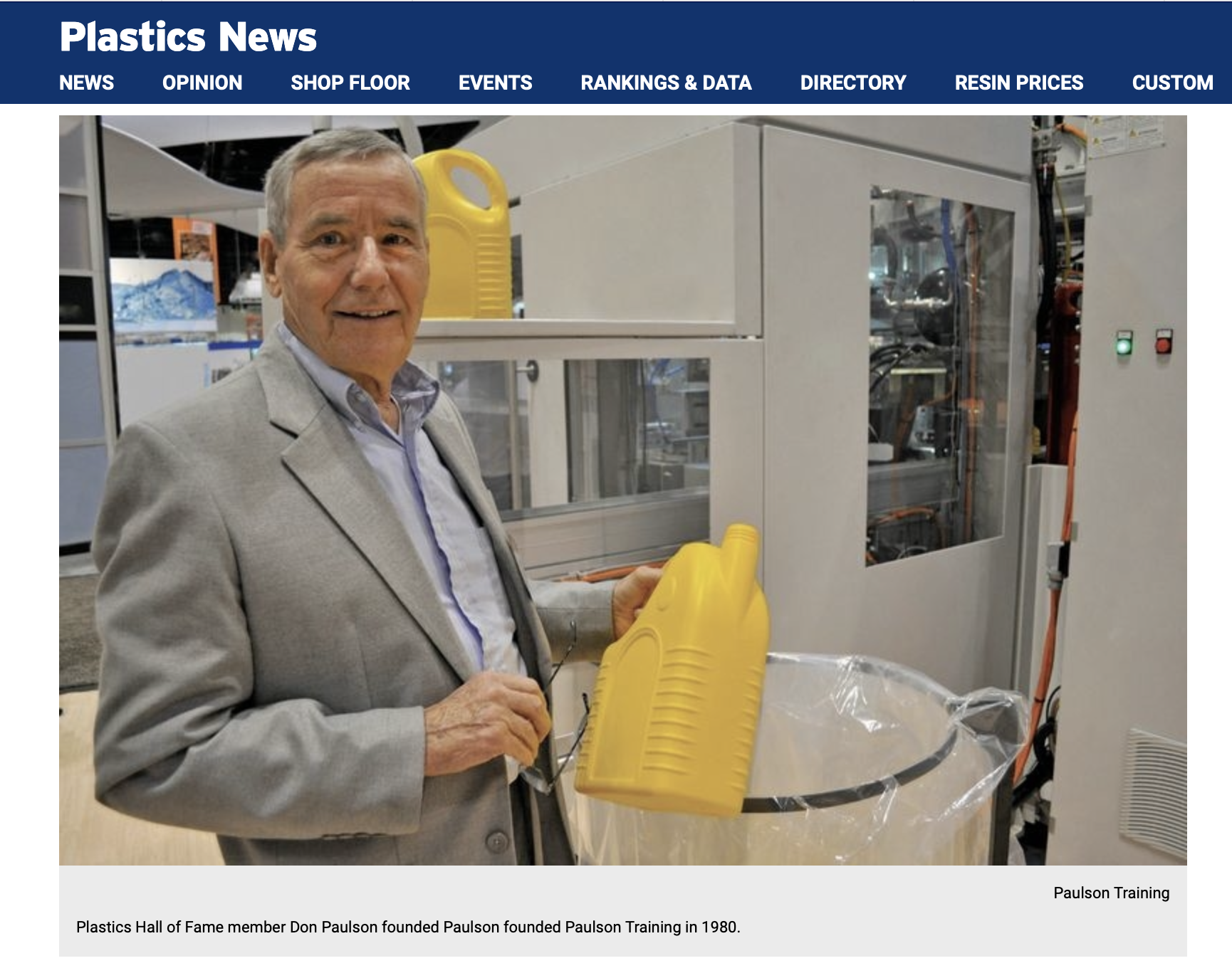 As a company that has been intimately involved with training in the plastic’s industry since the mid 1970’s, Paulson Training has been asked this question quite a few times. However, it’s probably not as often as you think.
As a company that has been intimately involved with training in the plastic’s industry since the mid 1970’s, Paulson Training has been asked this question quite a few times. However, it’s probably not as often as you think.
You see, most of the time, the person(s) in charge of employee training (if there even is such a person at a particular plant) will call us with a list of people/job titles that they want to train. More often than not, this list is not complete enough.
We started noticing a trend as far back as 20 years ago where companies began to offer basic injection molding, extrusion, blow molding, etc. training beyond the production floor employees. At first glance , this may seem as to be not a worthwhile use of time. However, these same companies started noticing a trend. Employee job satisfaction rose company-wide, turnover was reduced and communication in the plant was much more open.
Here’s the key… When you invest in a training system for your plant, it is available to any employee. Whether you choose to allow an particular employee to take certain training is up to you. What if someone who works in the front office asked to take a training lesson on Basic Injection Molding Machine Operations? Would you say no? Think about it. What is the down-side? The only obvious one is the hour or so it would take the employee to go through the lesson.
What’s the up-side? Well, you’ve got someone who is showing a willingness to learn more about what your company does and specifically, what some of his or her co-workers do out on the production floor. That is important. That employee will now be better able to communicate with production floor personnel. Now what if everyone in the office took at least some basic injection molding or extrusion training? Do you think that would have a positive effect?
We can tell you that in virtually 100% of the cases that we have dealt with, the company had significant positive effects from training beyond the production floor. Of course, non-production employees do not need to go deep into the Paulson plastics training library, but understanding how the injection molding machines or extruders work and what the people out there running those machines actually do can’t help but be a positive influence on job satisfaction, turnover and inter-department communications.
So when your deciding “Who should be trained?”, think outside the production floor “box” and consider opening the training up to anyone at your company who is interested. The incremental cost is inconsequential. The benefits are potentially huge.
Leave you comments below. We’d like to hear who at you company gets at least some processing training.



